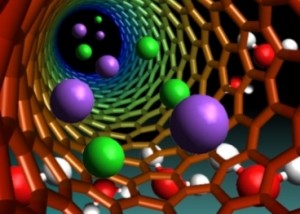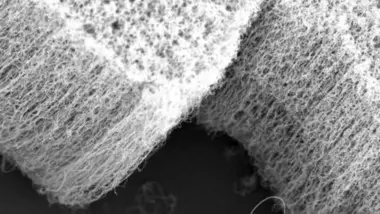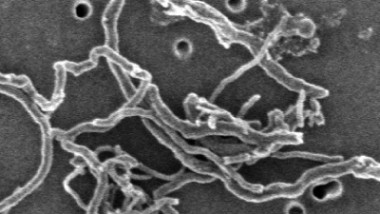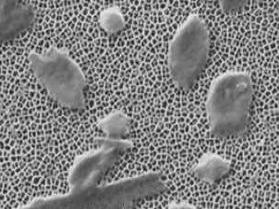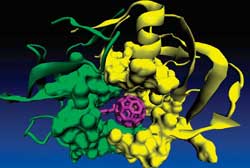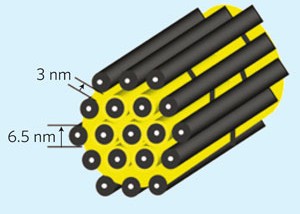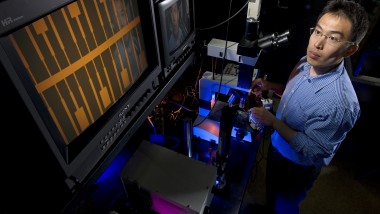We are all looking for ways to be more eco friendly and that change has to start at home. You may not have considered the impact that your home has on the environment before, but you use a lot of ...
Carbon Fiber for Storing Power – How Could it Benefit the Automotive and Aerospace Industries?
Image Source One of the major reasons that electric vehicles still haven’t gained widespread adoption is due to their (still) limited range. And part of this issue is related to the weight of the batteries; they may weigh up to ...
Pushing Ions Through Carbon Nanotubes
A research team from the Massachusetts Institute of Technology recently observed for the first time ever single ions traveling through a tiny carbon-nanotube channel. This achievement could lead to various industrial developments, including extremely sensitive detectors and new water-desalination system. ...
Improving Lithium Ion Battery Life
Researchers at Stanford University in Palo Alto, California are developing new carbon-silicon nanowire electrodes that increase the charge storage capacity of current lithium ion batteries by as much as 600 percent. Unlike recent electrodes using pure silicon, the carbon-silicon nanowires ...
Filling Fullerene with Radioactive Atoms
Scientists from Virginia Commonwealth University (VCU) have developed a hands-off process for filling fullerenes with radioactive material. Fullerenes are hollow carbon molecules that can be filled with different types of metal atoms. This new finding could be utilized in medical ...
Carbon Nanotubes Dangerous to the Environment
Scientists from the research center Forschungszentrum Dresden-Rossendorf (FZD) have discovered worrying properties of carbon nanotubes, which indicate that nanotube production may be dangerous to the environment. Their discovery, they say, may halt an otherwise diverse and fertile research area. Atomic ...
Buckyballs Prevent Water Biofouling
Researchers at Duke University in Durham, North Carolina have shown that buckyballs could prevent bacteria and other contaminants from attaching to water pipes and the membranes used to filter water in filtration plants. When bacteria attach to these surfaces, they ...
A Molecular Key to Halt HIV
A transatlantic research team has recently identified specific molecules that could block the ability of HIV to spread through the body by binding other proteins. If their discovery can be put to use as a drug, it will save many ...
Lithium-Sulphur Battery
Researchers from the University of Waterloo have developed a lithium-sulphur battery that can store and deliver three times more power than regular lithium ion batteries. By enhancing the electrochemical performance of a lithium-sulphur battery, the team at Waterloo’s Department of ...
Carbon Nanotubes ‘See’ Full Visible Spectrum
Researchers at Sandia National Laboratory in Livermore, California have created the first carbon nanotube device capable of detecting light in the entire visible spectrum. This should enable scientists to study single molecules and how they react to light. The new ...



